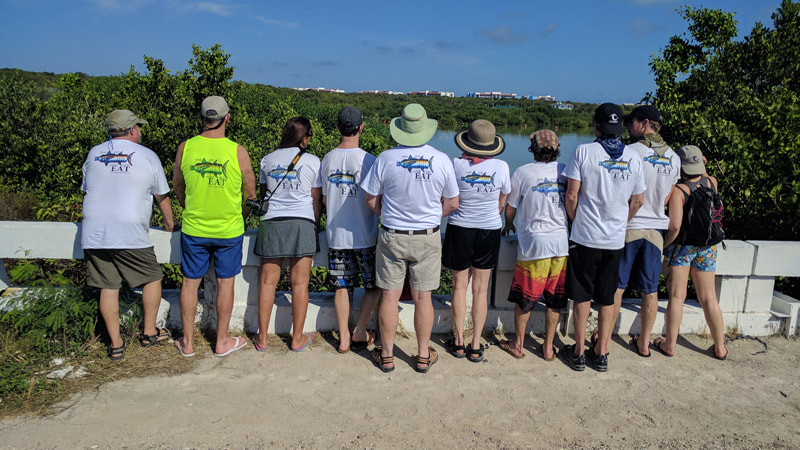Cuba 2017Amazing! was the common description for COI’s Cuba Expedition in January 2017. Warm people invited us to share their homes and lives and welcomed our efforts to improve ocean health by reducing plastic pollution locally on a global scale.
11 educators, students and passionate volunteers spent 10 days on the road in a wild collection of antique automobiles running on hope, ingenuity, and constant attention. Studying beaches, currents, and culture to comprehend the state of plastic pollution in a country isolated from westernized consumer culture for 60 years, Team COI Cuba 2017 represented themselves professionally and politely. We are proud to be invited to return to work with ocean advocates and academics with permission and participation from Cuban Government representatives.
Our 4th expedition brought us to Cuba in 2017. Some participants were generally academically inclined, two professors, one retired professor, three environmental science students from UC Santa Cruz, Berkeley, and Evergreen College in Washington. Other participants were consistent volunteers, three of which work for Southwest Airlines. COI’s Executive Director set a general goal for each leg of the trip and the daily agenda evolved as situations changed. We think that is adventure defined. The highlight of any travel is making new friends through common cause. We experienced an incredible outpouring of welcome and appreciation when we explained about plastic pollution and had open conversation about sources, reasons, and responses. The concept of converting plastic waste into diesel fuel was warmly embraced. Diesel is incredibly important to Cubans. We were fortunate to be hosted at the National Aquarium of Cuba by Angela Corvea, a legendary Cuban Marine Life educator. Over the past 13 years, her “Aqualina” Characters have met every child in the country during school. She has created a culture of respect for the ocean. Our general conclusion was that Cuba is in a good position to halt and reverse the great bulk of their plastic pollution relatively quickly and easily. The introduction of Plastic to Fuel technology would be a valuable tool to motivate the populace to increase management of plastic waste. Coupled with an increase in the plastic awareness by Cuba’s next generations through Aqualina, the country is poised to return to a more pristine state and healthier future.
COI is proud of our International Ambassadors for Ocean Health. Our guides and hosts were consistent in their praise of our team’s friendliness and outstanding respect and consideration for them and their culture. We were invited to return by every single person we interacted with. |
Project SummaryProject Name: Opening Our Eyes and Minds in Cuba 2017
Focus: Establish relationships in Cuba over discussions of ocean health and plastic pollution.
Number of Volunteers: 11
GROUPS INVOLVEDClean Oceans International
Cabrillo College UC Santa Cruz UC Berkeley Evergreen College, Washington Northern California Whale Rescue Southwest Airlines Volunteers Santa Cruz area Volunteers CHALLENGECreate positive relationships for ocean health with Cuban people and Government after 60 years of political divide.
7 hrs of travel time
Political uncertainty SOLUTIONTreat residents with respect
Plenty of humor Flexible attitude RESULTS6 Beaches observed, 3 MD-MAP surveys conducted
Raised awareness of plastic pollution and PTF recycling options
Created relationships with Cuban Marine Agencies and Residents
Introduction to Cuban culture
|
|
345 Lake Avenue, Suite G
Santa Cruz, CA 95062 Tax ID: 27-1898223 |
© Clean Oceans International. All rights reserved.



